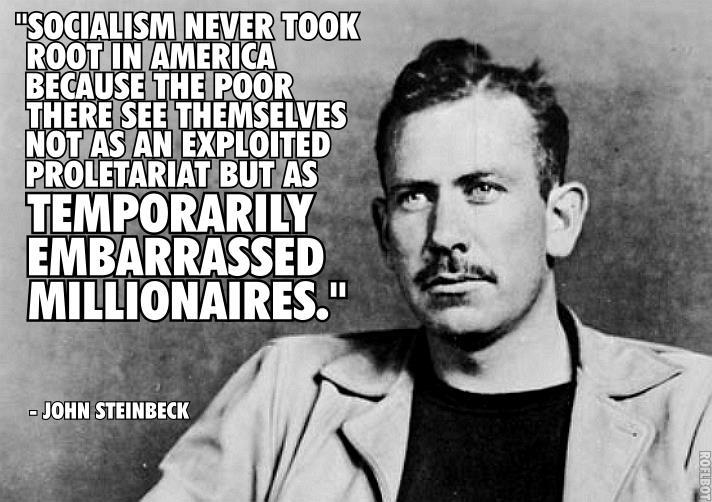![]() There are two commandments regarding poverty that I have come to dislike. The first is as follows: “Give a man a fish and you will feed him for a day. Teach a man to fish and you will feed him for a lifetime.” I do not disagree. I have simply come to the sad conclusion that those most likely to use the phrase are those most likely to neither give, teach, or fish.
There are two commandments regarding poverty that I have come to dislike. The first is as follows: “Give a man a fish and you will feed him for a day. Teach a man to fish and you will feed him for a lifetime.” I do not disagree. I have simply come to the sad conclusion that those most likely to use the phrase are those most likely to neither give, teach, or fish.
The second is my topic: “Never give money to a beggar. They’ll only spend it on drugs.”
The problem with this maxim is its cleverness. I am a man of conflicting desires. On the one hand, I want to keep my money, because I like money. On the other hand, I want to give to the poor, because it is good to give to those in need, and I desire the good. On the other hand, I want to go about my day without the interruption of a beggar, because I am selfish. On the other hand, I — a Christian, and worse, a Catholic — know that Christ wants me to break the pitiful shell of selfishness that petrifies me from reaching out towards my neighbor — to help.
Now the brilliance of the maxim is that it allows me to reconcile these conflicting desires — by doing nothing at all. I may keep my money, and more than that, keep it for the very reason I may have been inspired to give it away — for the benefit of the needy, who are benefited by my not supplying their potential drug addiction. I may walk past a beggar, and do it for the precise reason I may have stopped — I am called to help the poor, and it is no help to give money to a man who will “just spend it on drugs.” Miraculous! I may simulate the whole strength of moral feeling by doing nothing. I may walk past a beggar and say, “Thank you Lord, for helping me to show your love to the poor by aiding them in kicking their drug addictions by way of my generous not-giving.”
See, it is a clever commandment, but I am skeptical of any argument that allows me to do nothing in a spirit of doing something. But let us consider the claim.
It is true that we must give alms wisely. But what wisdom is it to assume a drug addiction of all beggars, and more than that, to assume that your personal act of almsgiving will be used, each time it is given, to that end?
Even if we do not make this assumption of all beggars, only admit the possibility of a beggar using our alms for drugs, our subsequent not-giving still seems based on a false conception of Christian charity. The Christian is not called to give usefully, that is, to give on the basis of the ends of his giving. Who among you buys flowers only on the condition that your gift is used for the ends you have in mind? A gift that is only given on the basis of what will be done with it is not gift, but an investment. As with all investments, it is dependent on the return, the result of giving. Giving on the basis of outcome isn’t necessarily bad, but it is hardly charity. For what is the Christian called to do? To love as God loves. How does God love him? Unconditionally. So, in imitation of our God, we should practice charity without conditions, understanding that a gift is not a philanthropic contribution to known, trusted and worthy cause — a gift that will only have the effects we are satisfied with — but a giving that allows for the possibility of misuse.
To put it as clearly as I can — I believe that the uncertain possibility that our alms will be spent on drugs is not a sufficient reason to withhold almsgiving, which “does deliver from death” and “purges away sins,” (Tobit 12:8-9) for giving on the condition of certainty as to the effectiveness and usefulness of your gift is far from the unconditional love of God, who gives us every good thing while allowing us the possibility of using every good thing to sin and damn ourselves for all eternity.
But what if drug addiction is more than a possibility? What if the track marks swell, the teeth rot, and the eyes are pinpointed or high-off-your-ass rosy red? What if — for whatever reason — we are quite certain that the approaching beggar is the dreaded drug addict, and that all our alms will be consumed, worthless as good-luck pennies thrown down a wishing well, but worse, because they aid a man in his own sin? Surely now the advice stands true? Surely now we may walk on in righteousness, following the modern commandment?
For the man for whom almsgiving is a mere matter of effectively contributing to worthy causes that promote the health and happiness of an individual, yes. For the Christian, called to unconditional love, things get more intense. Yes, it would be an evil to tempt a known drug addict by pressing cash into his hands. But this is because whatever money we have is not revealed to be too much to give the beggar, but woefully too little. Before we knew of a drug addiction, we were approached by a man asking for financial help. Afterwards, we are approached by man who — in sorrow and sin — asks for spiritual and physical help. If we refuse a request for money on the part of a drug addict, it is only because we have been confronted with the infinitely larger request for healing. The Christian may not say “he’ll buy drugs,” and keep walking, only “he’ll buy drugs, and now my obligation to give alms has been infinitely widened into the terrifying obligation to visit the sick, to ransom the captive, to comfort the afflicted, to instruct the ignorant, and to admonish the sinner.”
Yes, we should fear that the beggar begs to fuel his drug addiction, fear and tremble, for our duty to love — and thus to suffer — has been increased. What is my obligation? To pray, to admonish, to enter into a relationship of love, to embrace, to hold, to plead, to offer help, to offer to arrange a detox, an entrance into an effective program, to find what began their addiction and what keeps it killing them, to be patient with their sin, their scams, their schemes — all this and more if I am to make the conscious decision not to give on the basis of a drug addiction.
Now obviously, it is not possible for us to do this for every drug addict we encounter. But it is our duty to try when we can. It is our duty, at the very least, to be honest with ourselves, to ask whether we are saying “they’ll just do drugs” because we don’t want to give, and if not — if we truly want to give alms, but don’t want our help to hurt — to consider whether we are paying any mind to the greater obligations of love the fact of drug addiction presents to us.












